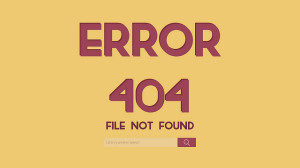Your website is your business’ front door
We use Google today just like we used the phone book years ago. In fact, anybody born from the late 1990s on only knows to use Google when looking up stuff (not that we even have phone books anymore).
Search on Google and you find websites!
Google pulls up two sources of information in response to your query—websites and different Google products, including Google My Business listings, and Google Maps. In other words, if you want your business to be found on Google, you need one or both of these (and you can’t have a good Google My Business listing without a website).
It follows that if you want your business to succeed, you will have a findable, updated, easy-to-navigate website. If you want to really have success, you will also claim your Google My Business listing, and keep it up to date.
The information that absolutely must be current
It’s absolutely essential that you keep your website and Google My Business listing current and up to date. If not, you might as well hope people still have that phone book handy so they can find your number.
There’s no big mystery about what you need to keep tabs on: anything that impacts your customer’s interaction with your business, including:
- Hours
- Location
- Contact information
- Team members/staff/leadership
- Services/products
- Pricing
If any of the above change, you must update your website. It really is that simple. If not, you risk alienating your customers.
Not keeping up with your website is….not good
Just in the past couple of months, I’ve had two instances where websites were not updated with important information. When I looked up the massage therapist that I’d gone to a couple of years ago, her website appeared the same, as did her pricing. I went ahead and made an appointment, and it was only after I was ready to pay that I learned that her pricing had gone up by 10%. Yesterday, I looked up my hair salon’s website to find the number to make an appointment. The website says that the salon is open seven days a week, but when I called yesterday (Monday), I got a recording informing me that the salon is closed on Mondays. Both of these experiences were annoying, but also avoidable had the business owners taken the time to update their websites.
Bottom line:
Keeping your website updated is a best practice for business. Not doing it can alienate customers.
About Deborah Brody
Deborah Brody writes and edits anything related to marketing communications. Most blog posts are written under the influence of caffeine.





